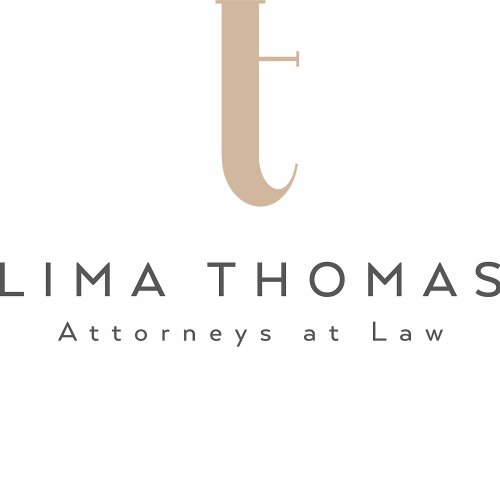Best Tax Lawyers in Lisbon
Share your needs with us, get contacted by law firms.
Free. Takes 2 min.
List of the best lawyers in Lisbon, Portugal
About Tax Law in Lisbon, Portugal
Tax law in Lisbon, Portugal, encompasses a wide range of legislation and regulations that govern how individuals and businesses are taxed. The taxation system in Portugal is administered by the Portuguese Tax and Customs Authority (Autoridade Tributária e Aduaneira). Taxation in Lisbon, as in the rest of Portugal, covers income tax, value-added tax (VAT), corporate tax, and property tax, among others. Portugal's tax code is known for its complexity and constantly evolving nature, which often necessitates the need for professional legal advice to ensure compliance and optimize tax liabilities.
Why You May Need a Lawyer
There are several situations where an individual or business might require the assistance of a tax lawyer in Lisbon:
- Complicated tax situations related to international investment or income.
- Dealing with audits or investigations by the tax authorities.
- Structuring business arrangements or corporate transactions to minimize tax liability.
- Disputes with the tax office over tax assessments or penalties.
- Navigating changes in tax law that affect personal or business finances.
Having professional legal expertise can help in understanding your rights and obligations, and in setting strategies to minimize legal exposure.
Local Laws Overview
Main aspects of tax law that are notable in Lisbon include:
- Income Tax (IRS): Progressive rates apply to individual incomes, which include earnings from employment and self-employment. Taxation applies to both residents and non-residents on income sourced in Portugal.
- Corporate Income Tax (IRC): Lisbon businesses are subject to IRC, which also includes municipal surcharges that may vary.
- Value-Added Tax (IVA): A standard rate of 23% is applied, with reduced rates for certain goods and services.
- Non-Habitual Resident Program: Offers favorable tax treatment to foreign individuals residing in Portugal, aimed at attracting new residents.
- Property Tax (IMI): Levied annually on property ownership, with rates varying by municipality and property type.
Frequently Asked Questions
What is the Non-Habitual Resident Status in Portugal?
It’s a tax regime that offers reduced income tax rates and even tax exemptions for foreign income for a period of ten years.
Can I deduct mortgage interest from my taxes?
Yes, under certain conditions, mortgage interest may be deducted from your taxable income if the property is your primary residence.
What are the deadlines for submitting tax returns in Portugal?
Annual income tax returns generally need to be filed between April 1st and June 30th for both residents and non-residents.
How are capital gains from property sales taxed?
Capital gains from property sales are subject to tax, but residents may benefit from exemptions or reductions under certain conditions, such as reinvestment in another primary residence.
Are there any penalties for late tax payments in Lisbon?
Yes, late tax filings or payments can incur interest and penalties, which can add significant costs to the original tax liability.
What documentation is needed for tax filing in Portugal?
Typical documents include the Modelo 3 IRS form, income statements, and any supporting documents related to deductible expenses.
Is foreign income taxable in Portugal?
Residents are taxed on their worldwide income but may qualify for exemptions or reduced rates under the NHR scheme.
How is VAT applied to goods and services?
A standard rate of 23% applies, with reduced rates for certain categories like food, medicines, and public transportation.
What should I do if I receive a tax audit notification?
It is advisable to consult with a tax lawyer to understand your position and comply with the tax authorities’ requests accurately and promptly.
How can a tax lawyer assist in a tax dispute?
A tax lawyer can provide expertise in interpreting the law, representing you in negotiations or court proceedings, and ensuring your rights are protected.
Additional Resources
Below are some resources and organizations that can provide additional guidance and support:
- Autoridade Tributária e Aduaneira: The official tax and customs authority in Portugal.
- Ordem dos Advogados: The Portuguese Bar Association where you can find registered legal professionals.
- Portal das Finanças: The online portal for tax-related services in Portugal.
- Business and Investment Support Agencies: Various governmental bodies offering assistance to businesses, including tax incentives.
Next Steps
If you are seeking legal assistance in tax matters in Lisbon, consider the following steps:
- Identify the Issue: Clearly outline your specific tax concern or requirement.
- Consultation: Arrange a consultation with a tax lawyer to discuss your case and understand your options.
- Documentation: Gather all relevant tax documents which may include past filings, correspondence with tax authorities, and financial statements.
- Legal Representation: If proceeding with legal or advisory services, ensure that you're represented by a qualified and experienced tax lawyer.
Engaging a knowledgeable lawyer can provide peace of mind and potentially result in favorable outcomes in your tax matters.
Lawzana helps you find the best lawyers and law firms in Lisbon through a curated and pre-screened list of qualified legal professionals. Our platform offers rankings and detailed profiles of attorneys and law firms, allowing you to compare based on practice areas, including Tax, experience, and client feedback.
Each profile includes a description of the firm's areas of practice, client reviews, team members and partners, year of establishment, spoken languages, office locations, contact information, social media presence, and any published articles or resources. Most firms on our platform speak English and are experienced in both local and international legal matters.
Get a quote from top-rated law firms in Lisbon, Portugal — quickly, securely, and without unnecessary hassle.
Disclaimer:
The information provided on this page is for general informational purposes only and does not constitute legal advice. While we strive to ensure the accuracy and relevance of the content, legal information may change over time, and interpretations of the law can vary. You should always consult with a qualified legal professional for advice specific to your situation.
We disclaim all liability for actions taken or not taken based on the content of this page. If you believe any information is incorrect or outdated, please contact us, and we will review and update it where appropriate.

















